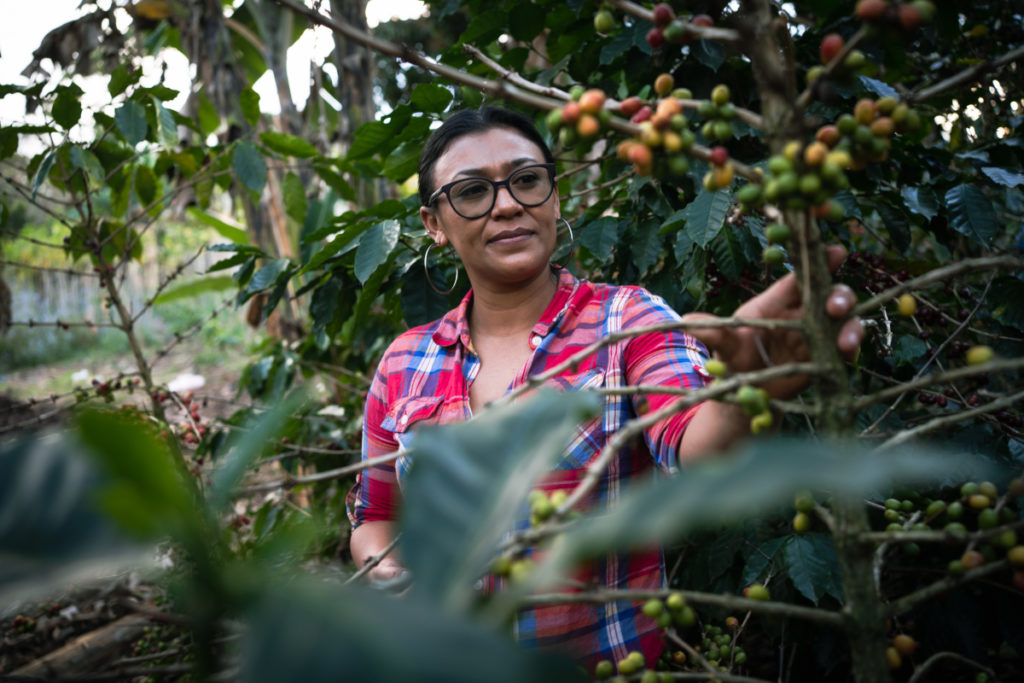It takes a lot of expertise to produce the high-quality beans that end up as your favourite cup of coffee. But the life of the smallholder coffee farmer behind your morning brew is far from easy.
Smallholders produce 75 per cent of the world’s coffee, but even though they grow huge volumes of beans, in many regions these farmers earn little for their coffee. They have little negotiating power in coffee supply chains and many struggle on low incomes due to price volatility, and yet they bear most of the risk.
All the while, the climate crisis poses a huge threat to coffee producers while deepening poverty and inequality, especially for those who already live in rural communities without access to good roads, schools and healthcare.
Here, we highlight some of the dangers to the future of your favourite cup of coffee.
Farmers are facing many threats
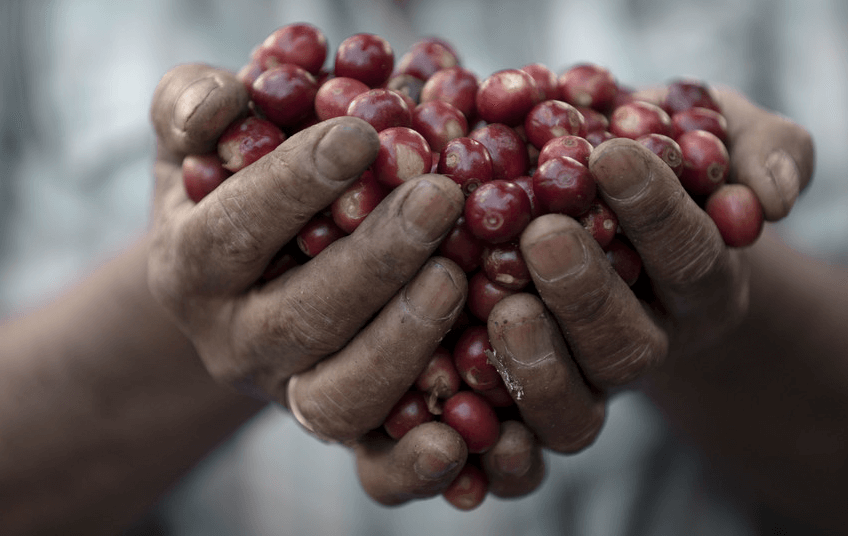
1. Many non-Fairtrade farmers receive very low prices for their crops that don’t even cover their costs
At the same time, coffee prices can change hugely because of weather events, changes in currency or supply and demand, making it an incredibly unstable commodity.
To put this in context, coffee farmers today receive an estimated 3 per cent of the cost of a cup of coffee sold in your local coffee shop. Between 2018 and 2020, the price fluctuated around US$1 a pound, causing a crisis for farmers.
It drove thousands of coffee farmers into poverty. It’s also worth remembering that the price of your favourite coffee is set by the retailers and not by the coffee farmers, who don’t get to see any uplift in the prices they get.
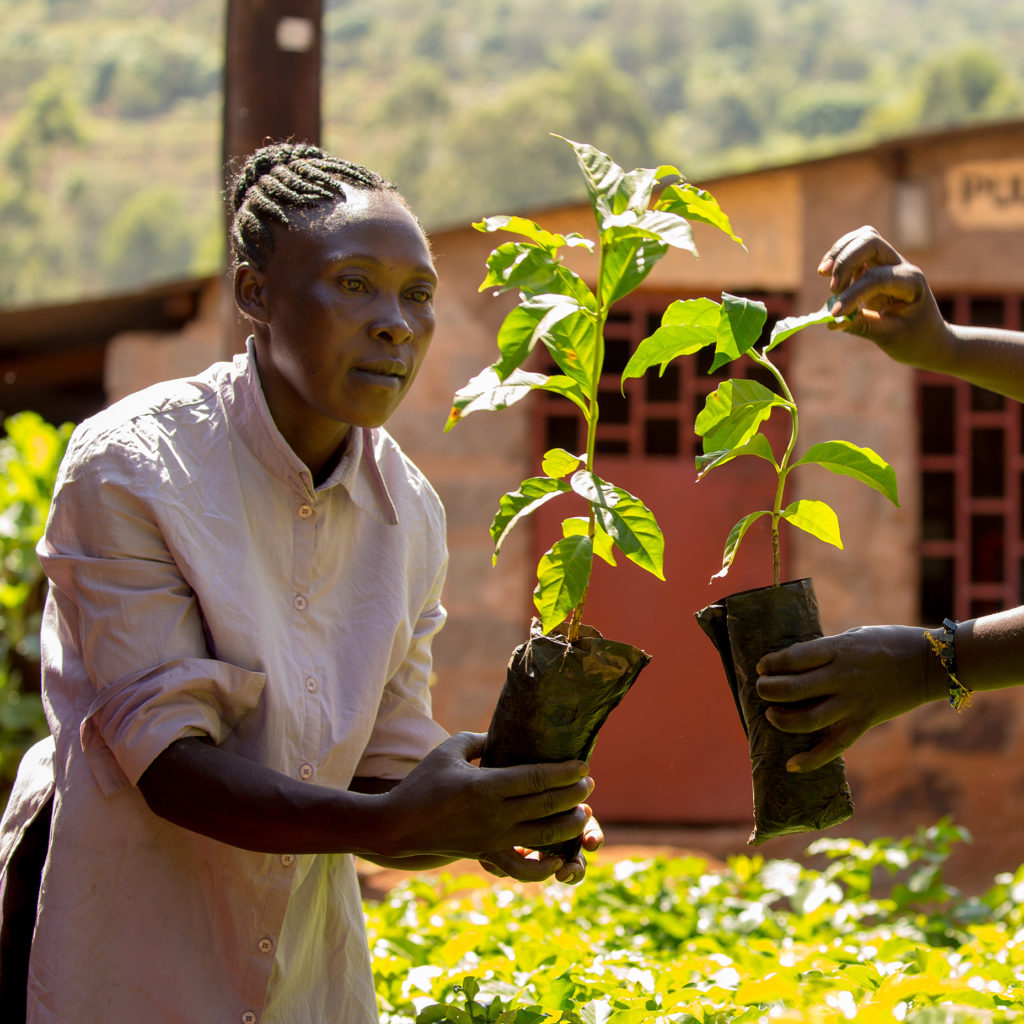
2. The climate crisis is a huge threat to farmers in low-income countries, even though they have contributed the least to the crisis
Coffee is very climate-sensitive, and changes in rainfall and weather patterns can spell disaster, and farmers can lose their entire harvests because of these changes.
It’s predicted that by 2050, 50 per cent of the global surface area currently being used for coffee farming will no longer be suitable for growing coffee due to climate change.
But, with increased incomes and extra funding for green projects, there’s a lot that producers can do to protect their land and farm in a way that makes the soil healthier and less prone to landslides, etc.
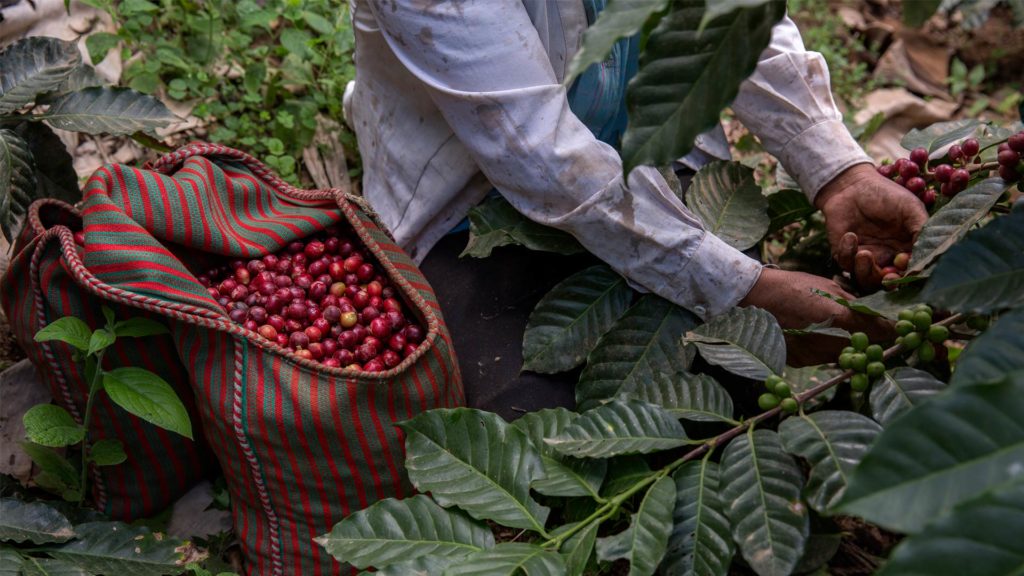
3. The cost-of-living crisis is global
This means that farmers are facing soaring production costs.
75% of coffee is produced by smallholder farmers, so these increasing costs directly affect the farmers’ livelihoods.
With bills soaring in the UK, many are worried about the rising cost of living in 2023.
But for many agricultural communities that have already been struggling, these increased production costs threaten farmers’ survival.
When crops are wiped out by blight, pests, diseases and/or storms, this can make farming families even more vulnerable.
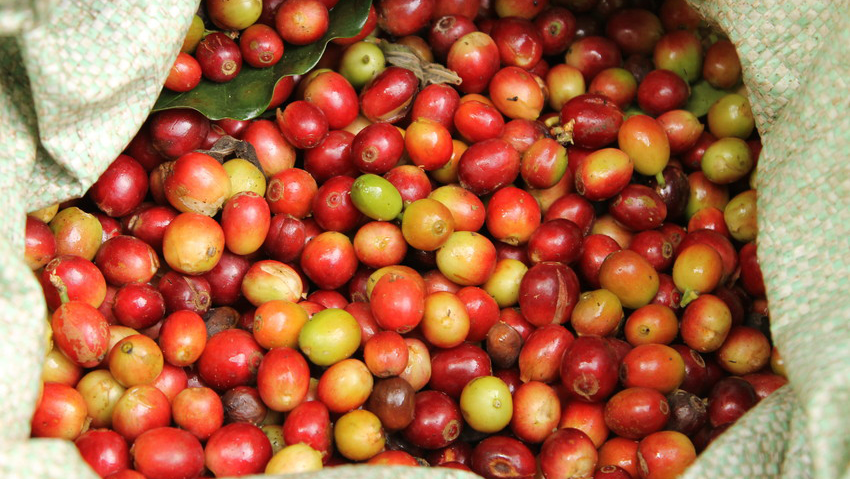
4. All this has been made worse by the Covid-19 pandemic
The pandemic disrupted production and sales, leaving farmers drastically out of pocket.
Unless farmers earn more for their crops, they’ll struggle to afford to protect their families and livelihoods, as well as their communities, from the many crises they face.
That’s where Fairtrade comes in
Buying Fairtrade coffee is easy and affordable. Every bean bought means certified farmers in low-income countries can earn fairer prices for their produce, receive a Fairtrade Premium to invest in their business or communities, and benefit from training and support from our Producer Networks.
All this means they stand a much better chance of protecting their crops, livelihoods and communities from the threats they face.
There are dozens of Fairtrade coffee suppliers across the UK, ranging from take-outs like Greggs and Leon to supermarkets such as M&S, Waitrose and Co-op (who sell Fairtrade coffee as part of their value ranges), and popular brands like Percol, Café Direct and Cru Kafé.
